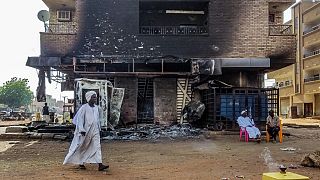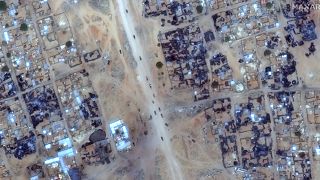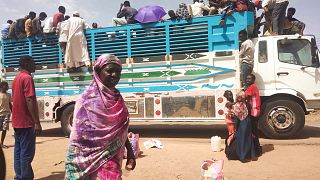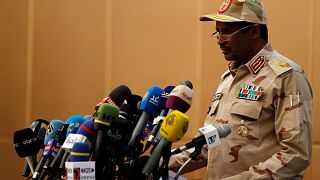Sudan
Battered by the ongoing deadly violence, the Sudanese are now hopeful that the one-week humanitarian ceasefire will end the "suffering".
The United States and Saudi Arabia announced that the ceasefire agreed in Jeddah between the rival camps would take effect at 9:45 pm (1945 GMT) on May 22 to enable humanitarian assistance to civilians.
Despite the previous breached truces, war-weary civilians clung to hope that the approaching ceasefire would hold, allowing desperately needed aid to bolster the dwindling supplies of food, medicine and other vital resources.
"The Jeddah agreement is a real breakthrough for the Sudanese people, it will alleviate the suffering we are now witnessing. All solutions to wars in the world start with negotiations and a truce. So we, the people, really hope that this truce will have a chance and will be effectively implemented on the ground," said one Khartoum resident.
Around 1,000 people have been killed in the more than five weeks of violence that have plunged the already poverty-stricken country deeper into humanitarian crisis.
More than one million have been uprooted, including in excess of 250,000 who have fled Sudan across borders, creating regional fallout.
Currently, 25 million people -- more than half of the population -- need humanitarian aid, the UN said.
For residents like Khaled Saleh, who lives in the capital's twin city of Omdurman across the Nile, the latest truce pledges could be a lifeline.
"With a ceasefire, running water can be restored and I will finally be able to see a doctor because I am supposed to see one regularly for my diabetes and high blood pressure," he told AFP.
Medics have repeatedly warned that the health care system is on the verge of collapse in Khartoum and elsewhere, particularly Darfur.
The UN has reported hundreds of civilians killed in the West Darfur capital El Geneina.
Intense fighting in Nyala, the capital of South Darfur, killed 28 people last week, according to the doctors' union, which said many of the wounded cannot reach hospitals, most of which remain out of service.
"If the truce holds, I will leave Nyala in order to save myself and my livelihood," said Othman al-Zein, a shop owner in Nyala market, which has been repeatedly attacked and looted.
"Although I doubt it will be implemented across Sudan," he told AFP.
The ceasefire agreement to take effect Monday night includes as "an integral part" an earlier pact, signed by the warring parties on May 12 in Jeddah, to respect humanitarian principles and allow in badly needed aid.
But the May 12 deal was already violated, according to the UN which reported "at least 11 attacks against humanitarian premises in Khartoum, and four new attacks against health facilities" since May 12.
Burhan and Daglo in October 2021 jointly staged a coup that derailed a fragile transition to civilian rule put in place after the 2019 overthrow of former autocrat Omar al-Bashir.
But they later fell out in a bitter power struggle, including over the integration of the RSF into the regular army.
"It is absolutely essential that we get a ceasefire that is effective and enduring, and we get back onto the political track," Andrew Mitchell, a minister of state in the UK Foreign Office, told AFP in Geneva.











02:35
Sudanese Refugee Children Find Hope in Libyan School
02:20
Sudan’s cultural heritage in ruins: Khartoum’s National museum ravaged by war
Go to video
Dozens flee deadly RSF attacks in north Darfur as camps suffer heavy losses
Go to video
UN refugee chief urges support as Sudan crisis spills into Chad
01:13
Sudan: At least 89 killed in paramilitary attack
Go to video
Rapid Support Forces vows war with Sudanese army is not over